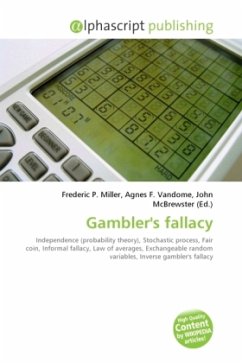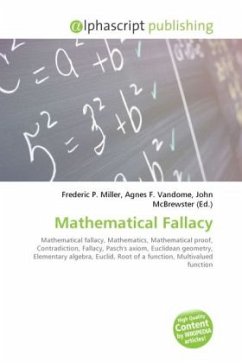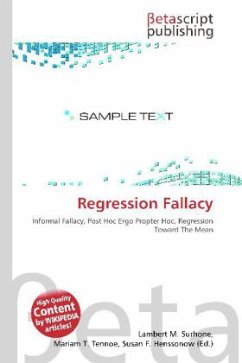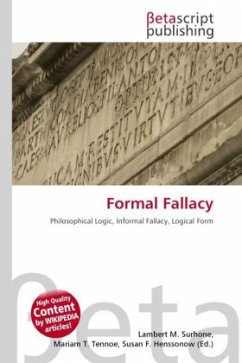The gambler's fallacy, also known as the Monte Carlo fallacy or the fallacy of the maturity of chances, is the belief that if deviations from expected behaviour are observed in repeated independent trials of some random process then these deviations are likely to be evened out by opposite deviations in the future. For example, if a fair coin is tossed repeatedly and tails comes up a larger number of times than is expected, a gambler may incorrectly believe that this means that heads is more likely in future tosses. Such an expectation could be mistakenly referred to as being due. This is an informal fallacy. It is also known colloquially as the law of averages. The gambler's fallacy implicitly involves an assertion of negative correlation between trials of the random process and therefore involves a denial of the exchangeability of outcomes of the random process. The inverse gambler's fallacy is the belief that an unlikely outcome of a random process (such as rolling double sixeson a pair of dice) implies that the process is likely to have occurred many times before reaching that outcome.
Bitte wählen Sie Ihr Anliegen aus.
Rechnungen
Retourenschein anfordern
Bestellstatus
Storno








